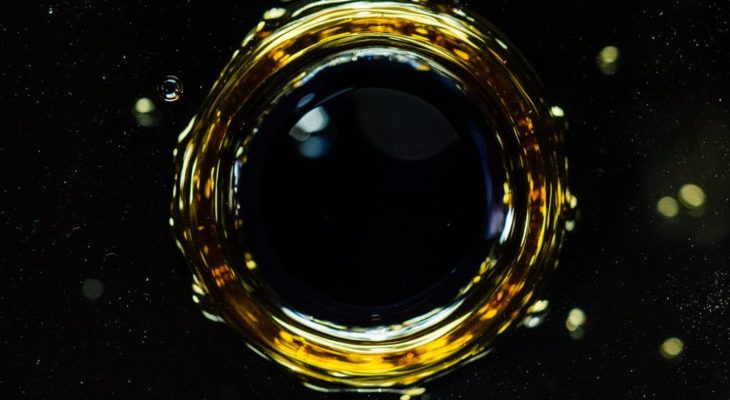How to Fully Deep Clean and Sanitize Brewing Equipment

Using sterile equipment is one of the keys to brewing delicious, safe-to-drink beer. I thoroughly clean my brewing equipment and sanitize it every time I’m finished brewing, but how do I do it?
To deep clean and sanitize brewing equipment, the first step is always to pick out the right cleaning products. Next, soak the equipment with a cleaning solution, scrub, and rinse. Once you’re ready to brew, give everything a dose of sanitizer solution before starting the brewing process.
This article will take you through each step you’ll need to take to fully deep clean and sanitize your brewing equipment, along with some things you might want to keep in mind along the way. Read on to discover how I fully deep clean and sanitize my brewing equipment!
1. Choose the Right Cleaning and Sanitizing Chemicals
Perhaps the single most crucial step in cleaning and sanitizing is choosing the right products.
I love brewing beer, and there is nothing worse than finding out I have contaminated suds because I used the wrong cleaning solutions.
Check out this video on YouTube where I show you five signs of contaminated beer.
One of the reasons that beer gets contaminated is that the cleaning products used are not up for the task.
Luckily, I have done the heavy lifting for you and discovered some of the best cleaning products for cleaning beer equipment!
What Products Should I Use for Cleaning Brewing Equipment?
Here is a look at some popular beer cleaning products and how they rate against each other:
| Product Name | Average Amazon Rating | My Opinion |
| Five Star PBW | 4.8 | The Best! |
| Oxygen Brewery Wash | 4.6 | Pretty good, but not ideal for aluminum equipment |
| OxiClean | NA | Stay Away! |
I always choose a product intended for brewing, like Five Star PBW, because it is the safest option. Five Star PBW is designed for use with brewing equipment, so I am confident that it has been tested thoroughly and has the best reputation.
The problem with using chemicals like bleach that are not made to use with food and beverage equipment is that some residue can remain and possibly end up in your beer glass.
Studies have shown that cleaning products can remain on brewing equipment, especially when the optimal temperature isn’t used to clean.
Products To Avoid When Cleaning Brewing Equipment
There are plenty of arguments people make for using other chemicals that aren’t specifically designed for brewing beer.
The bottom line is: if it’s not explicitly made for brewing, I will always say I’m not using it.
Here are some alternatives to brewing equipment cleaners I avoid:
- Bleach
- Oxyclean
- Dish soap.
I’m not saying you can never use these products or that they will necessarily be fatal if you use them.
However, they require that you get every bit out of your brewing equipment and are not intended for use with your brewing tools.
It is just better to stick with a product with a solid reputation for being used with brewing equipment for the best results.
What Sanitizing Products Should I Use for Brewing Equipment
Choosing sanitizing products is equally as important as choosing cleaning products, if not more.
I realize the importance of sanitizing my equipment for the safest brewing experience, and it all starts with the chemicals I use.
Here are some of the most popular sanitizing solutions which I think work best:
| Product Name | Amazon Rating | My Thoughts |
| Star San | 4.8 | The Best! |
| One Step | 4.8 | Good Alternative |
| Bleach | NA | Stay Away! |
Star San is my favorite sanitizing product. It is a non-rinse option that you can spray on and wait a few minutes, and you’re ready to brew!
Sanitizing Products To Avoid for Brewing Equipment:
Much like when I’m cleaning my brewing equipment, I only want to sanitize with products made exclusively for this purpose.
Some products I try to avoid at all costs when sanitizing include:
- Bleach
- 409
- Other household cleaners
Again, this is because if any residue is left in the equipment, it could alter the taste or even have more severe results. Stick with chemicals designed for brewing, and my favorite is Star San!
2. Clean the Main Components of Your Brewing Equipment
Now that I’ve chosen the right solutions, it’s time to clean my brewing equipment.
I do this with every batch of beer I brew for the best results. This helps prevent infected beer, which, while you might be able to drink, is often unenjoyable.
I clean anything and everything that touches the beer. There are a lot of solids and debris that may attach to your equipment, so make sure you clean thoroughly.
What Components Do I Need To Clean?
As mentioned, clean everything that came into contact with your beer. This rule goes for everything from the brewing components to your hands. Yes, I always wash my hands or wear gloves before cleaning.
Why Wash Your Hands First?
You have to wash your hands before handling anything with which you plan to make food-grade products.
It is imperative to wash your hands, and many studies like this one have proven how important that is!
Now that I have washed my hands, it’s time to clean the rest of my brewing equipment, large and small!
Preparing for the Cleanup
I take a few very easy steps to get my equipment ready to clean.
Before I clean my brewing equipment, I try to save one crucial ingredient I can use again for future brewing. The ingredient I like to keep for future brewing sessions is yeast!
Here is a video showing exactly how I save yeast for future batches of beer.
In addition to yeast, you might want to save other components, like the beer you brewed. Get everything in order and emptied right away, so you are ready to start the process of cleaning your brewing equipment.
How Do I Clean My Brewing Equipment?
There are three main steps to cleaning your equipment:
- Apply the chemicals: The first step is to apply the chemicals! Once I have selected my product, I apply it to the tool I’m cleaning and add water according to the directions.
- Soak the tools in water and cleaner: Now I let it soak. Different chemicals recommend different soaking times, but I always like to go a little longer for good measure.
- Scrub hard: Now I scrub. Please give it some elbow grease! Scrubbing hard is an important step that I cannot stress enough. You need to get everything off the surface. And I do mean everything.
- Rinse: Rinsing off is a step that some people overlook, and I am not sure why. You have to rinse after cleaning. It’s vital for a complete deep cleaning of your brewing equipment.
Most Common Brewing Equipment You’ll Need To Clean
- Hydrometers
- Funnels
- Fermenters
- Hoses
- Buckets
- Siphons
- Mash Tun
Depending on if you are homebrewing or brewing on large-scale equipment, there might be other tools or parts that you might need to clean.
Again, the rule that I always stand by is that if anything comes into contact with beer or other contaminants, I must clean it before brewing my next batch.
How Do I Know When It Is Clean?
It might be daunting to consider whether or not your brewing equipment is fully clean. I am a perfectionist and want to see everything squeaky clean. Seeing how clean my equipment is is why I like transparent components whenever possible.
There are few signs to look for that help this process become a bit easier. I like to consider some factors influencing whether I think I cleaned my equipment well enough.
These include:
- Is there any visible debris? The most unambiguous indication that I didn’t clean well enough is if I can still see dirt and debris on my brewing equipment. If I can, I know I need to start over and scrub harder.
- Can I smell anything foul? Another sign that I didn’t clean well enough is if things don’t smell right. If there’s a funny odor, then I know I didn’t get it clean enough.
- If I have any doubts, I trust my gut. I’ve been brewing for a long time, so if something doesn’t feel right, I won’t hesitate to clean it again.
Is It Essential To Clean Before Sanitizing
Some people skip the critical step of cleaning. After all, they argue they will be sanitizing later. Don’t do this!
I always clean my brewing equipment before sanitizing. No matter what, I am giving anything that touches my beer or will touch it in the future a great scrub down and rinse before sanitizing products.
3. Sanitize the Main Components
Sanitizing everything that I clean is paramount. I will not have spotless and usable equipment until I sanitize it.
When cleaning, I need to sanitize anything that came into or will contact my beer. Sanitizing is vital because unwanted growth, both large and small, can transfer from the brewing equipment to my beer.
I do not want a glass full of bacteria like I don’t want a pint full of dirt. For this reason, sanitizing all the equipment for your beer is imperative.
But how do I best sanitize the brewing equipment? It depends on the equipment and type.
How Do I Know How To Best Sanitize Equipment?
Different materials can withstand different temperatures. Once I’ve selected the type of hose I’m going to brew with, I will have a better sense of how I will clean or sanitize it.
Some hoses, like silicon, can withstand extremely high temperatures or chemicals, which makes them suitable for sanitizing. However, other materials don’t withstand heat quite as well.
I like vinyl hoses because I can see through them. The problem is they are susceptible to being damaged by high heat. If using hot water while cleaning, this might damage vinyl hoses.
When sanitizing my brewing equipment, I usually just replace the old hose with a new one. Replacing equipment ensures that I am using the safest hoses, and I know that they’re sanitized.
Read here to see exactly how I clean my tubing when I brew beer.
Different Equipment Requires Different Handling
I only use the best hoses when I’m brewing. Not only is it essential to pick the correct hoses, but I always make sure I clean them well, too.
Here is a great video I made showing what hoses you’ll want to consider for brewing beer:
Most hoses or tubes should hold up to non-rinse sanitizer with no problem.
If I have any doubts about other equipment that comes with special handling instructions, I’m always sure to consult an expert. Just like some chemicals aren’t good for aluminum, the same can be said about other tools for brewing.
Sanitize Right Before You Brew
I can’t stress this enough. I always want to sanitize my equipment just before brewing. Otherwise, there’s really no point in doing it.
Unless you have a completely sterile room, which almost no one I know does, microbes can find their way into the brewing equipment if you sanitize too far ahead of time.
I make sure that I sanitize everything that I’ve cleaned. Moreover, I also recommend sanitizing new equipment, too. Even if I haven’t brewed with something, I don’t know where it’s been stored.
Conclusion
Deep cleaning and sanitizing brewing equipment can make a huge difference when brewing beer.
The good news is that brewing clean and safe beer is relatively easy if you follow a few simple steps as outlined in this article.
A few things to consider about properly cleaning and sanitizing include:
- Clean and sanitize with reputable products.
- Never skip the cleaning step before sanitizing.
- Always scrub and rinse when cleaning.
- Make sure to toss out equipment if it can’t be sanitized safely.
If you follow the steps, you can be confident that you fully deep cleaned and sanitized your brewing equipment.



